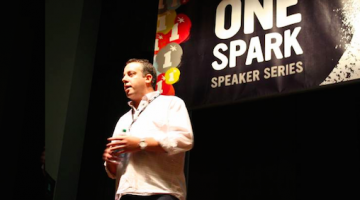Greg Simon is CEO of health-focused crowdfunding service, Poliwogg. He recently sat down with Equities.com to talk about how the crowd can fund a healthy crowd — and why these investments make so much sense.
Discussing recent US rule changes (the JOBS Act) which enable a wider number of investors to take equity positions in crowdfunding projects, Simon notes that the previous regime posed problems for health-focused firms: they could get early funding but this became harder in the mid-game.
“Well, it’s been very expensive because health care companies need a lot of money and before the JOBS act they could only have a certain number of investors. So it made every investor give them a whole lot of money which kept a whole lot of people out of the game because they couldn’t afford to diversify with those levels for minimum investments,” he said.
Another problem was that in the past you weren’t able to generally announce what you needed investment for, it was necessary to talk to investors one at a time. This meant you only had a limited number of people you could convince.
“So if you’re raising money for a company that’s working on a treatment for Parkinson’s disease, you can’t tell anyone unless you know they’re wealthy enough. That means you have to go to investors one at a time, and that’s a very lousy way to raise money. We wouldn’t be able to sell many cars if we had to sell them that way,” he said.
Simon predicts health-related investments will attract a wide number of investors, and suggests these investments may mean big changes for health care:
“People have the opportunity now to put their money where their heart is in terms of their health interest. They can invest in the companies that are investing in them, that are trying to create new therapies for them but need a lot more money than the venture capital industry is willing to provide.”
He hopes these changes in investment rules as they relate to crowdfunding services will enable “a lot more” health-related startups to bring their idea to light.



